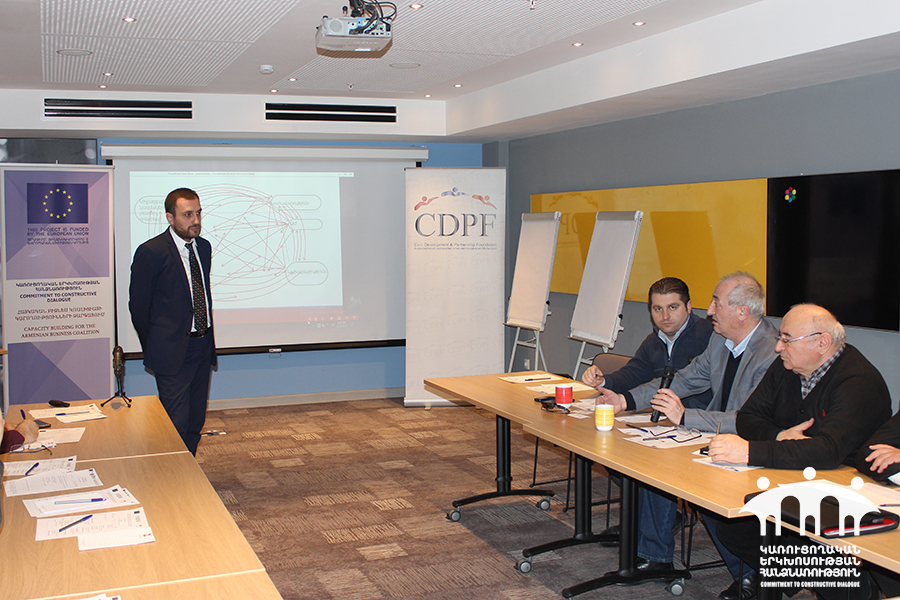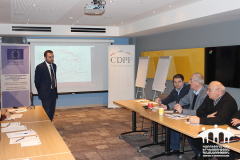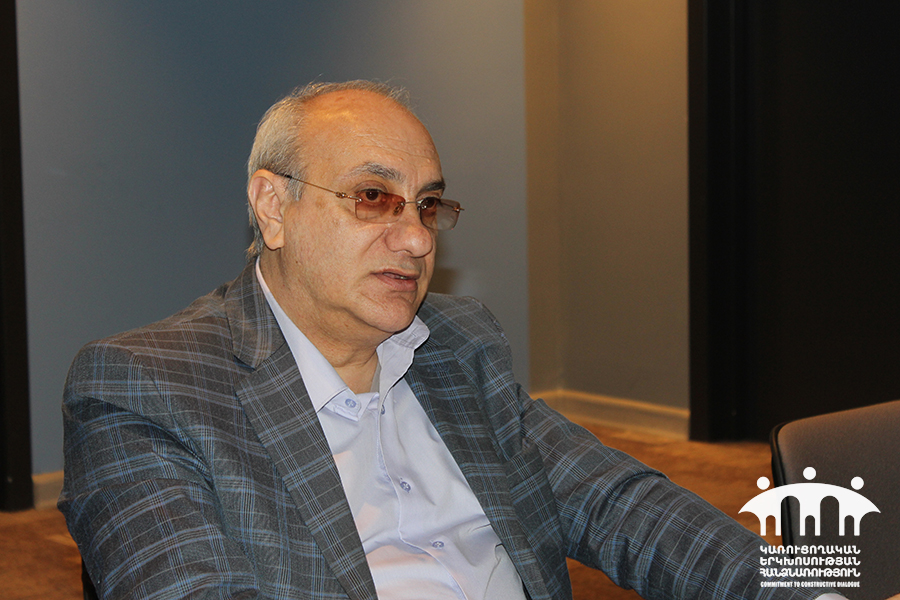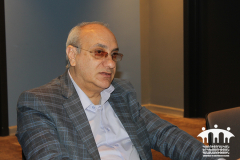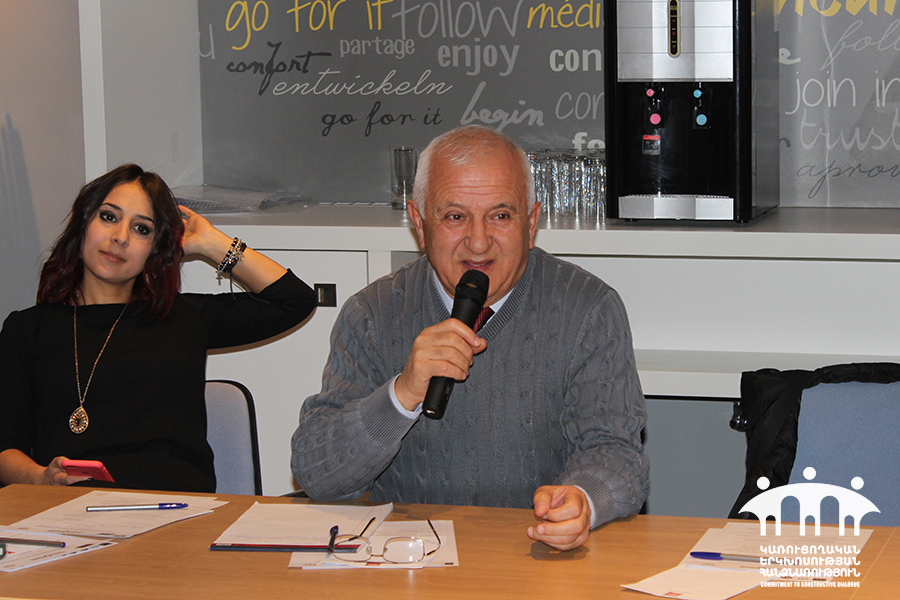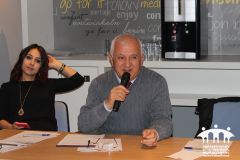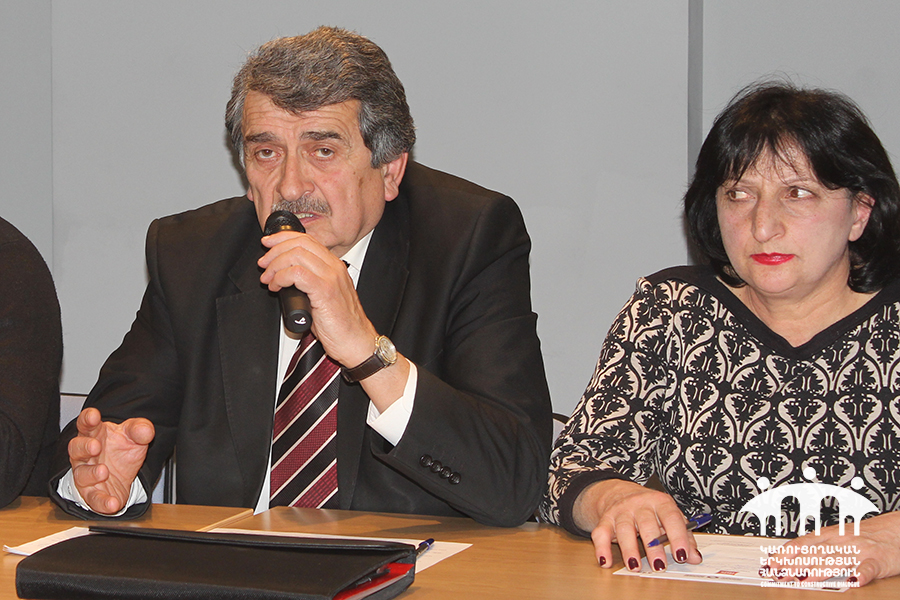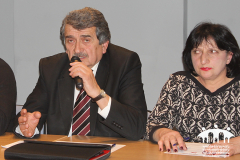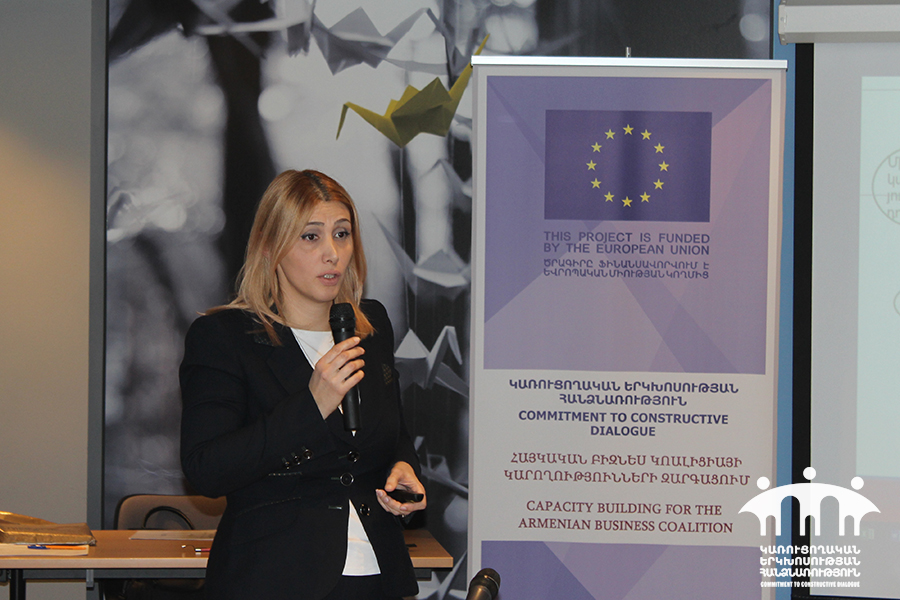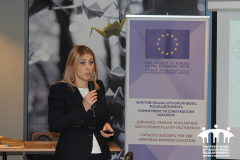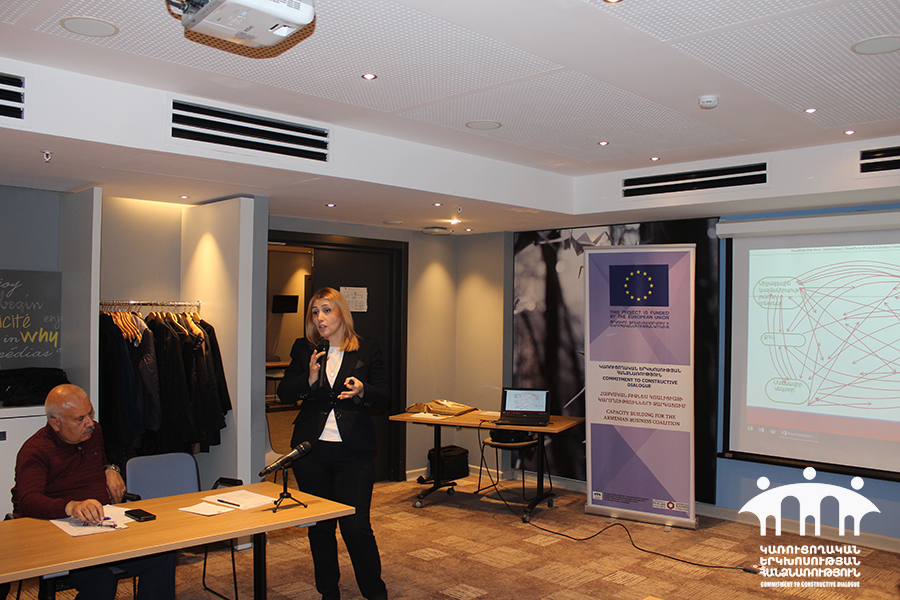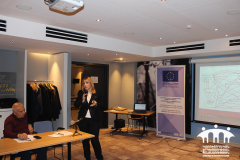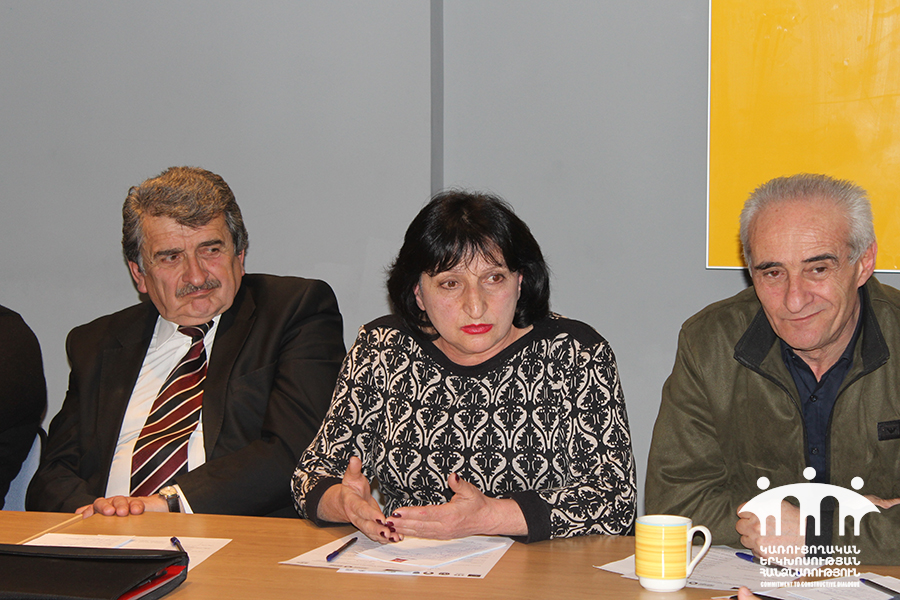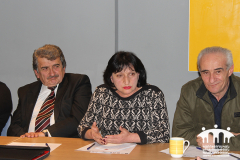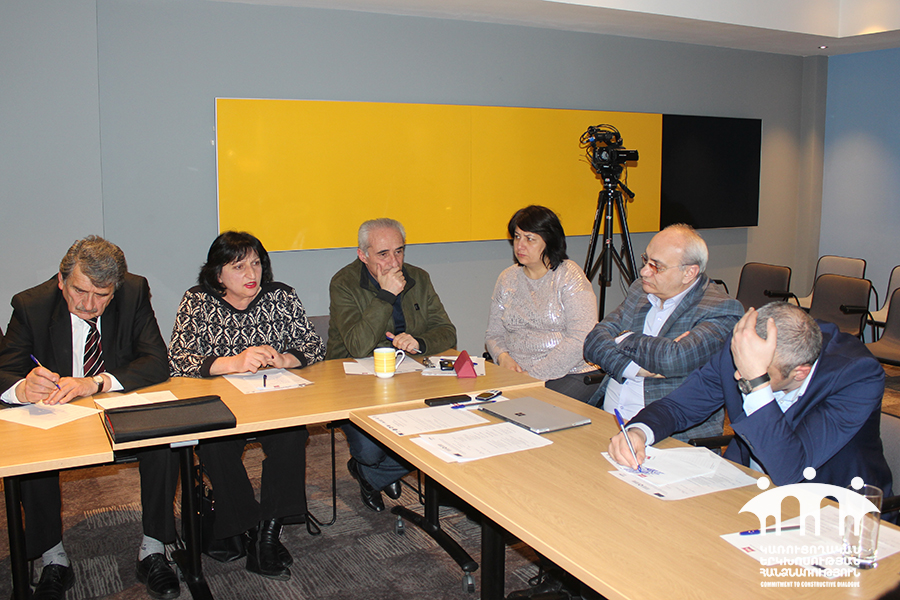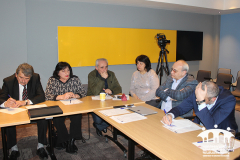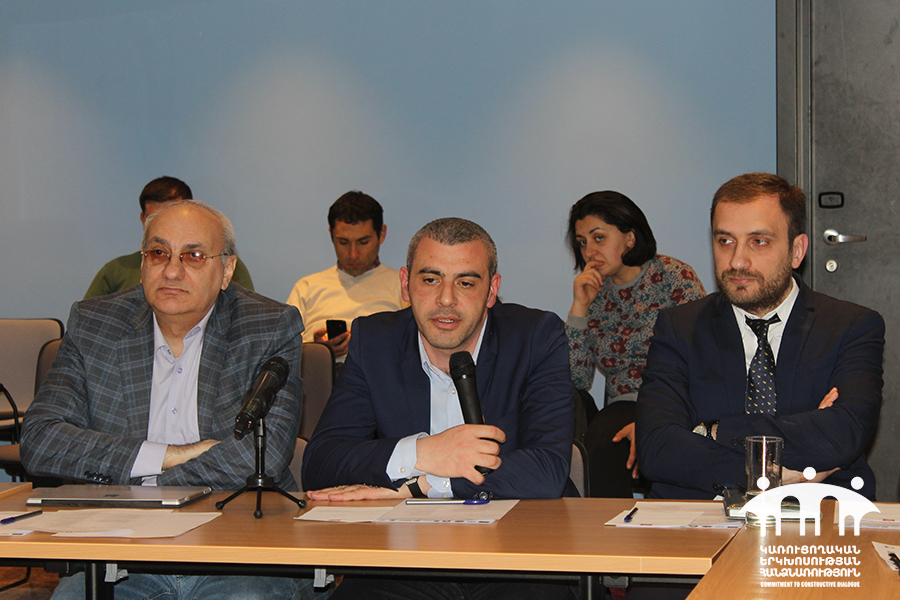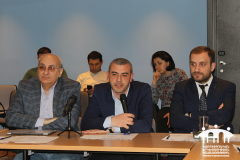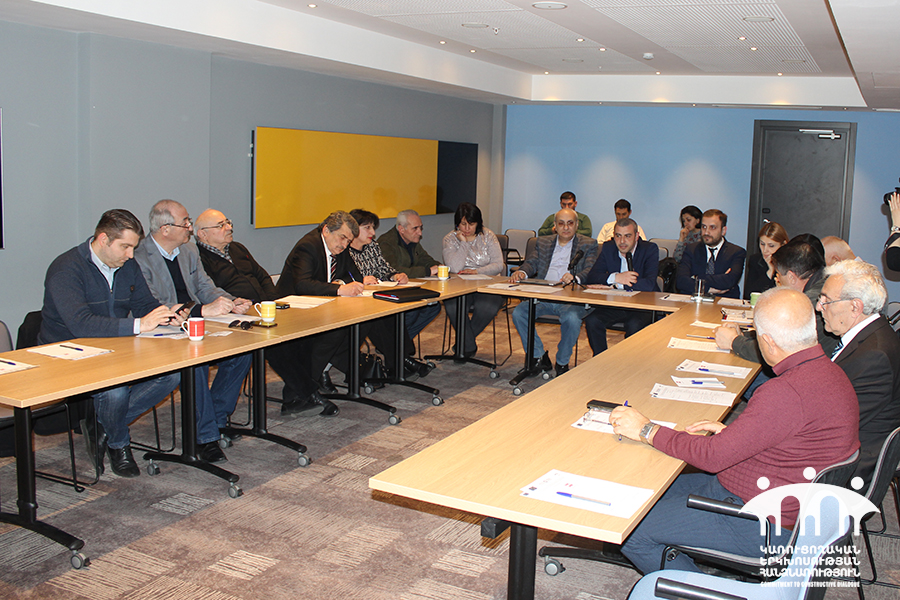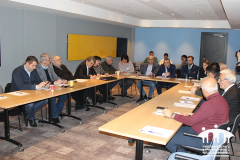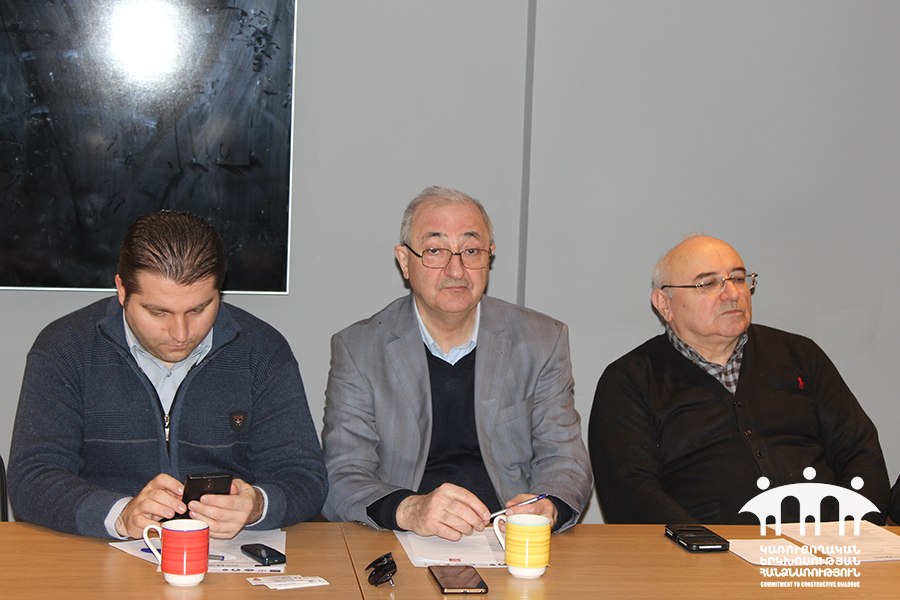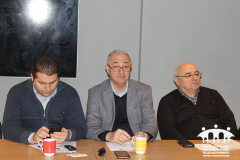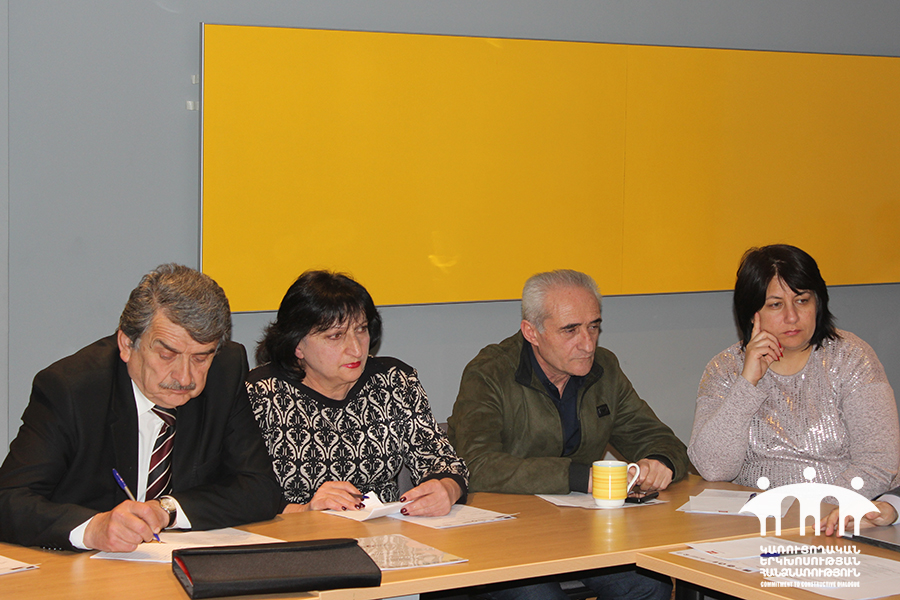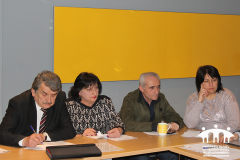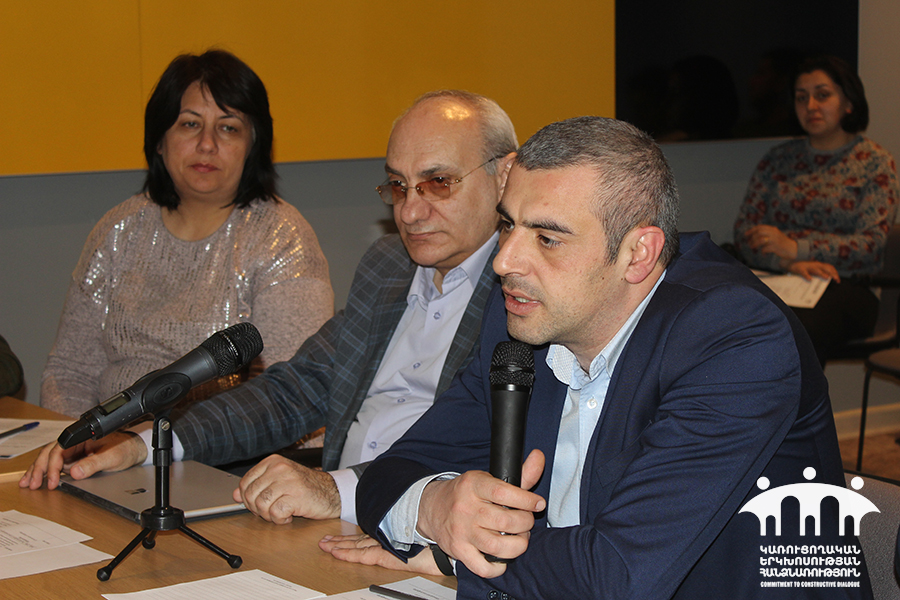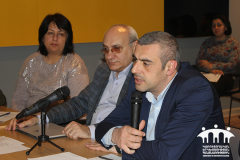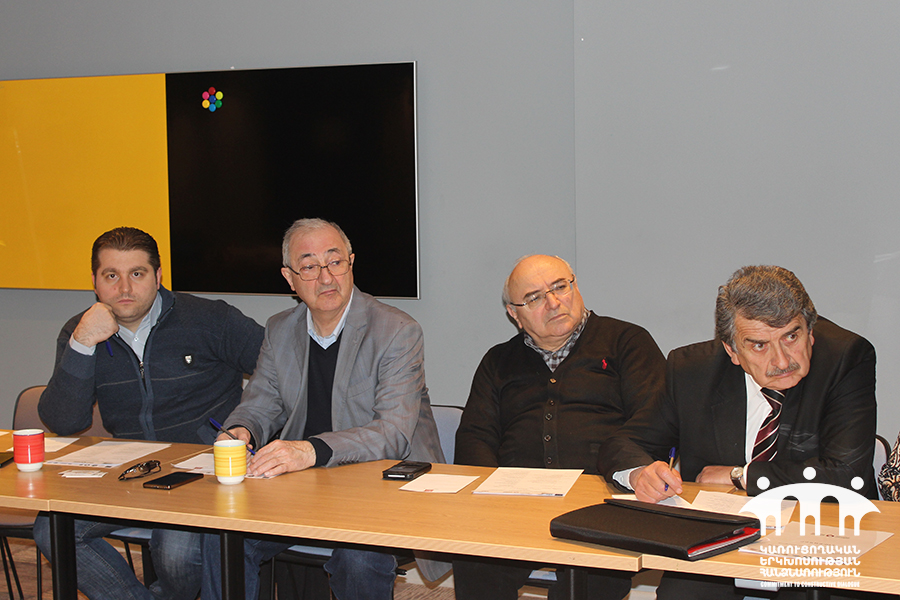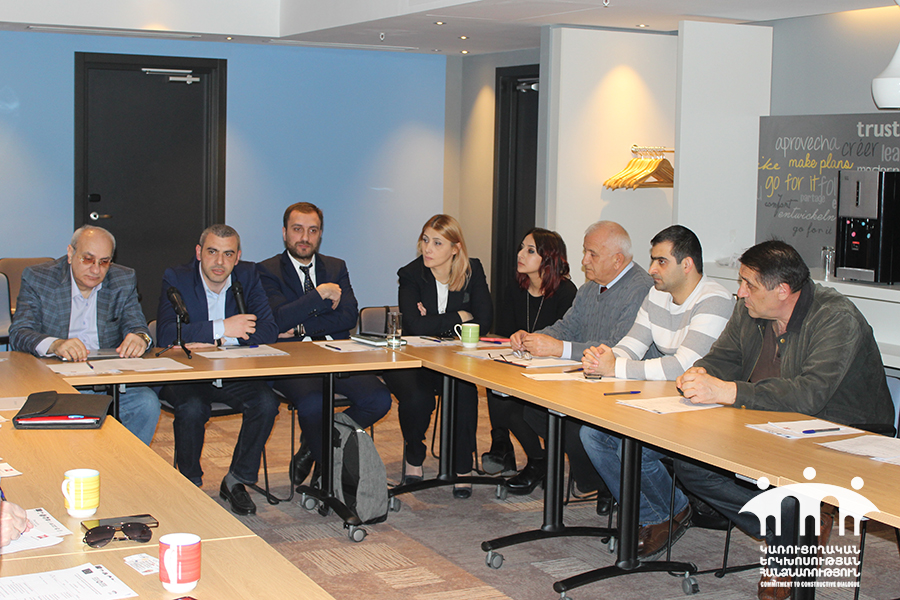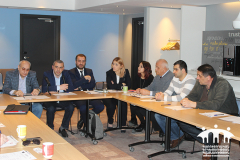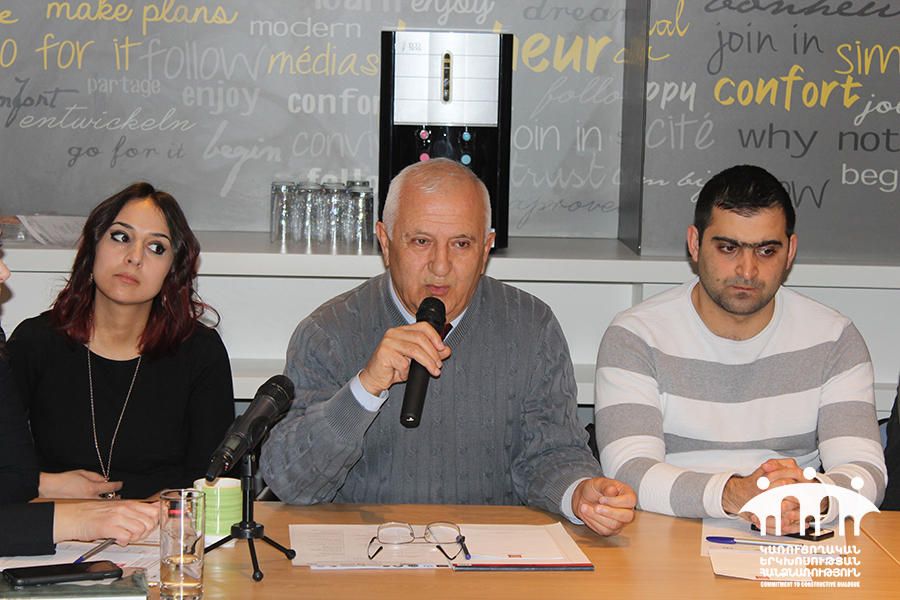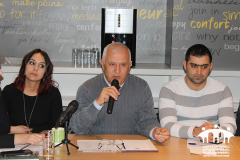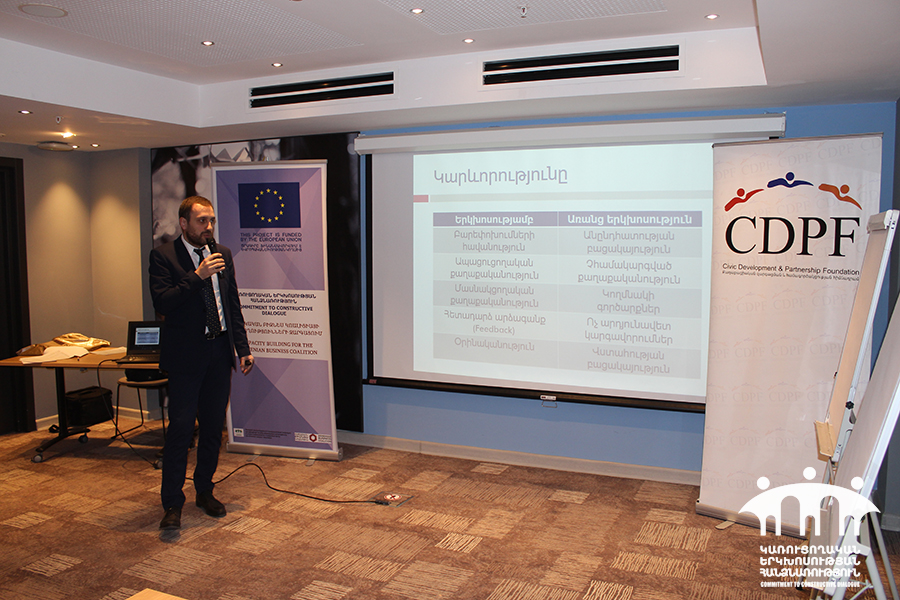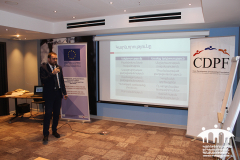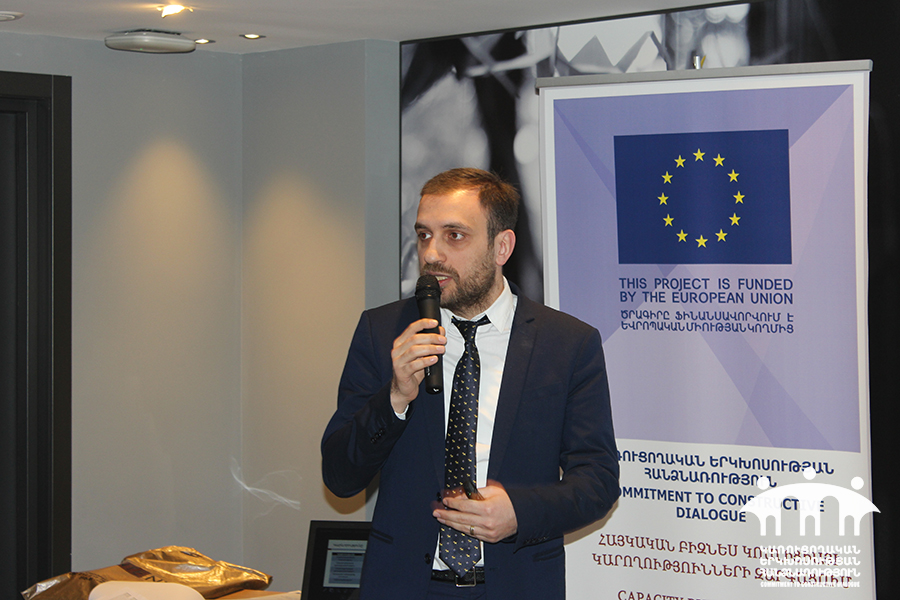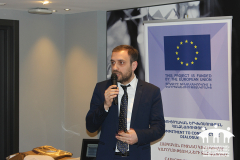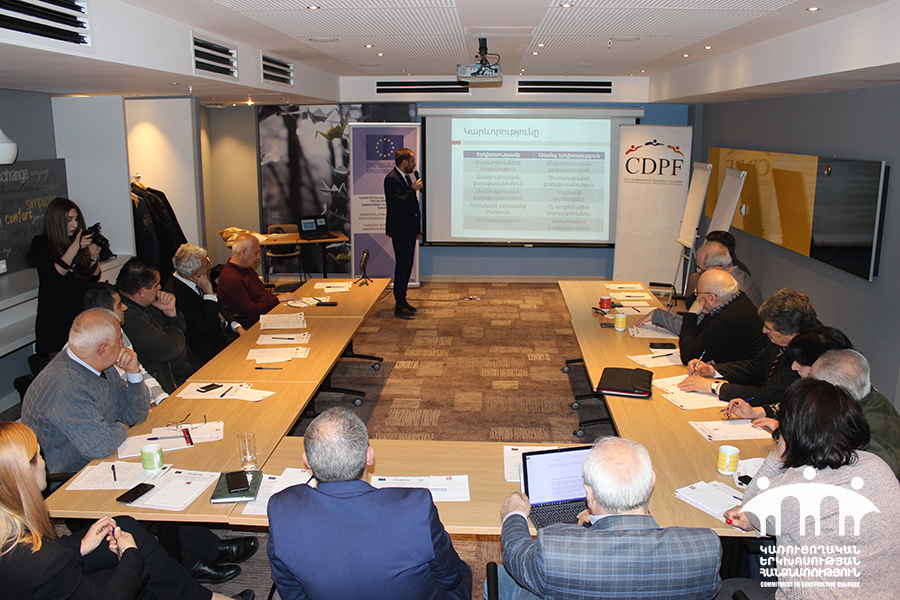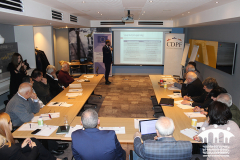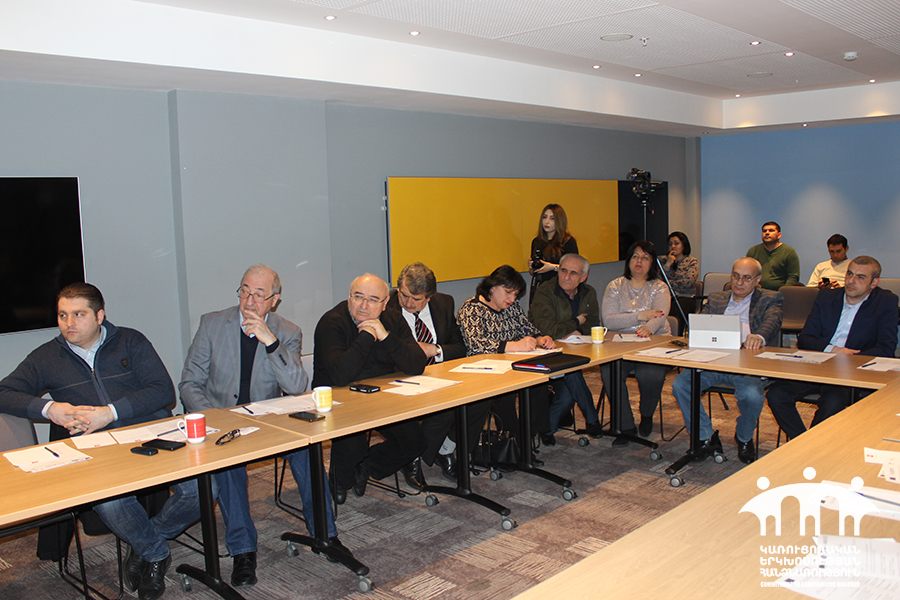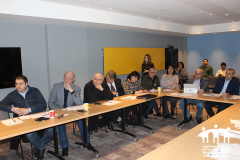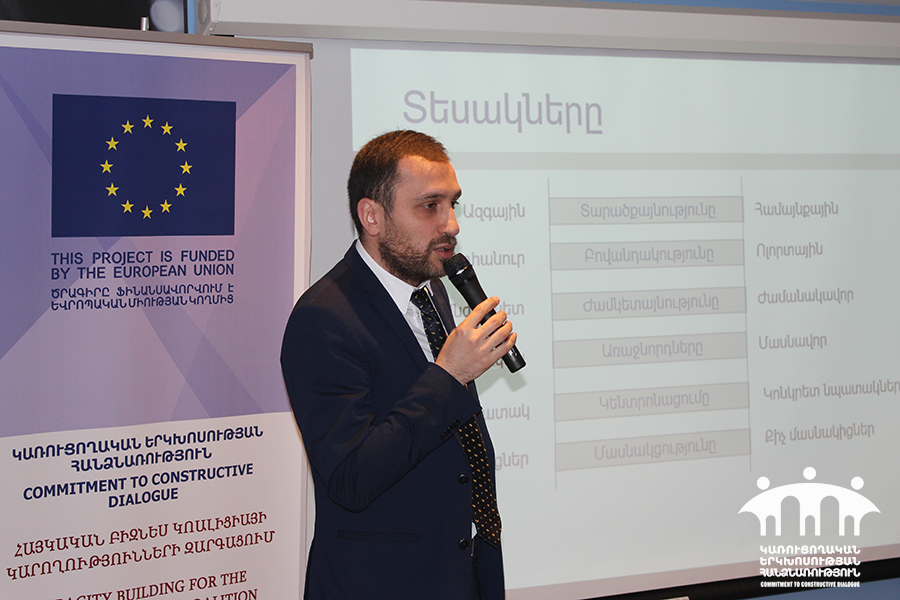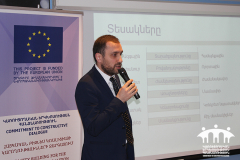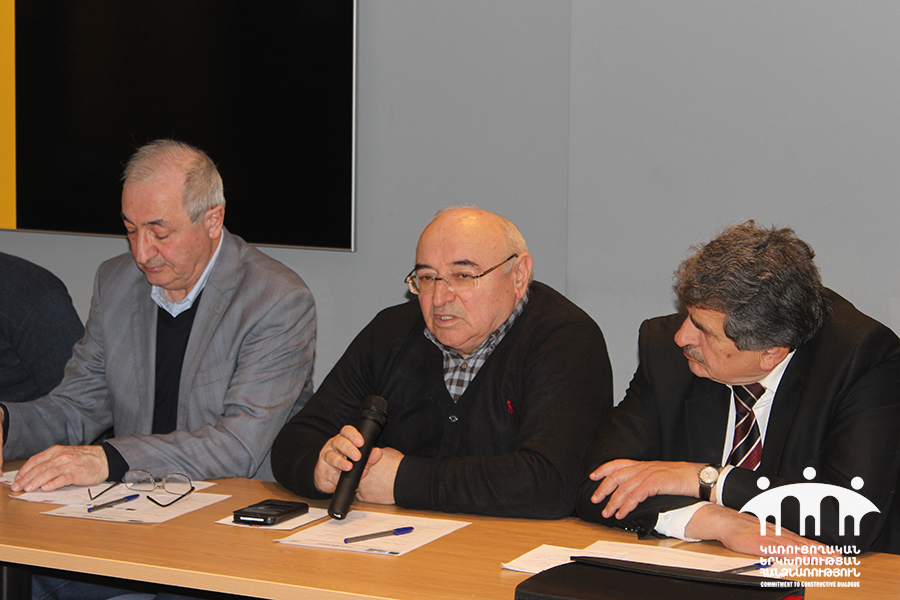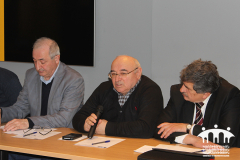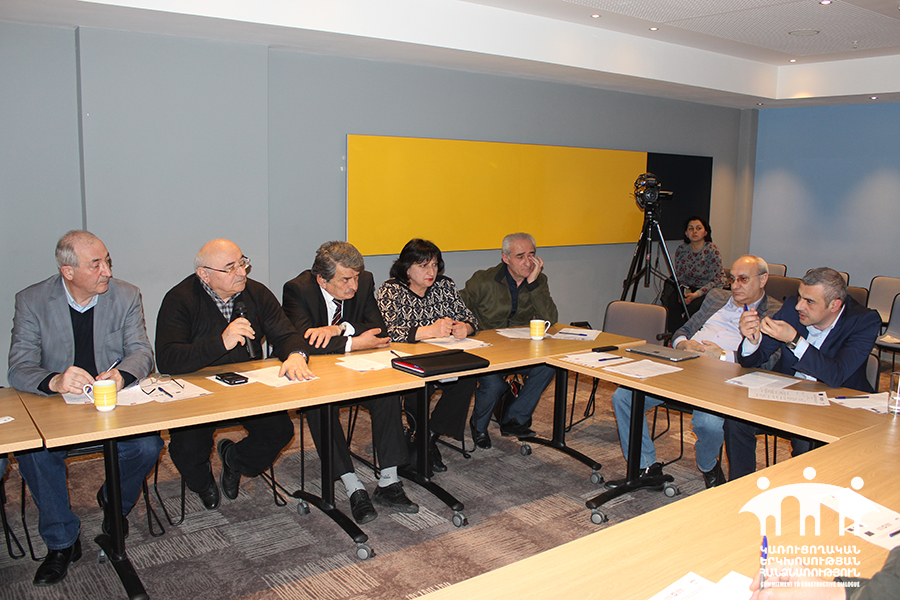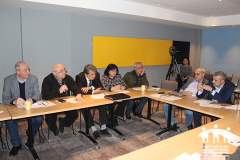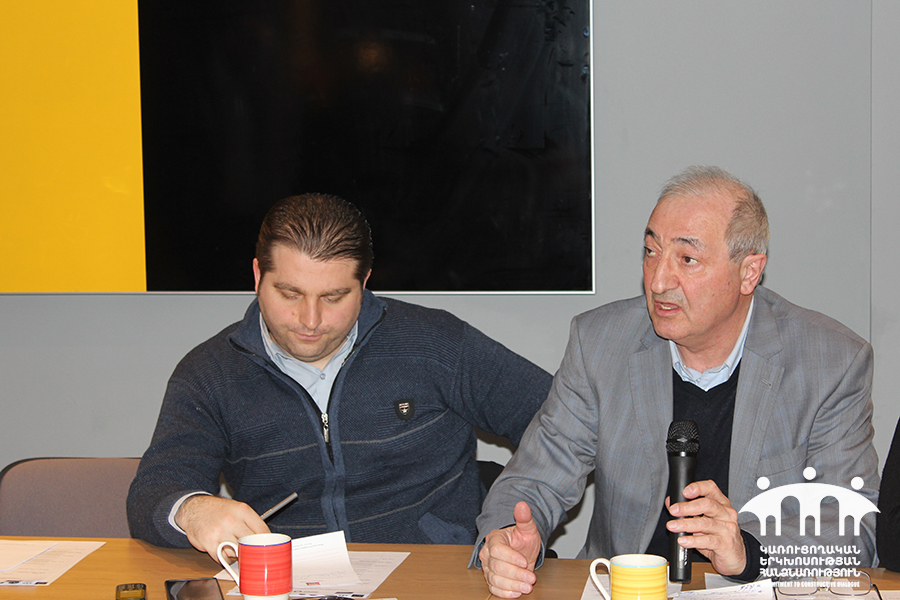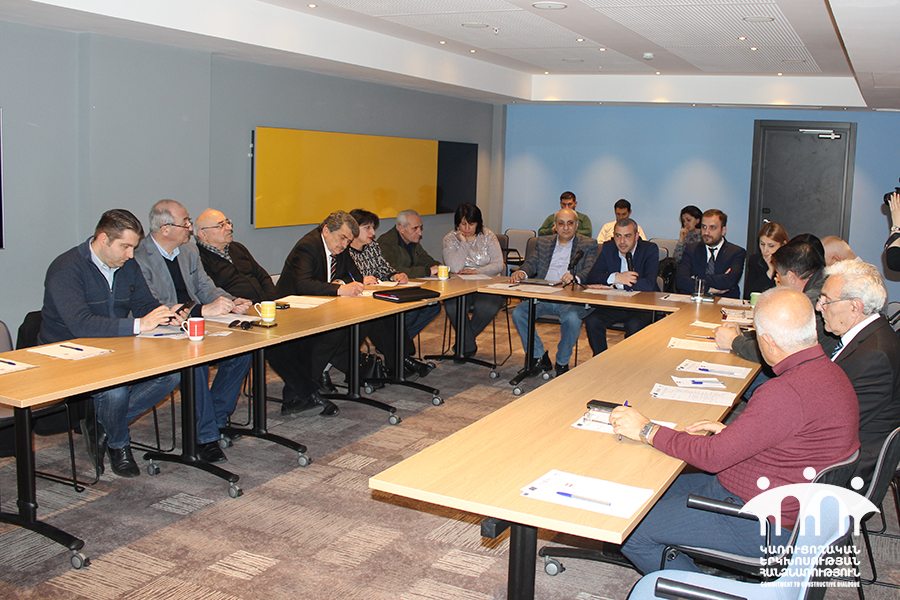
On 19 March, a series of debates between the government and small and medium-sized businesses were held within the framework of the “Armenian Business Coalition Capacity Building Program” implemented in the scope of the EU-funded “Commitment to Constructive Dialogue” Project.
Mr. Gagik Poghosyan, Chairman of the Governing Board of the ABC welcomed the participants, noting that the meeting was the first in this format. “The purpose of our meetings is to create as a coalition a discussion platform where we can raise various issues, discuss topics, and come up with some common positions and conclusions. I think that in future events we will learn together as a group of organizations as a coalition aimed at participating in effective implementation of the state policy and economic reforms aimed at promoting private sector development and business environment in our country,” he mentioned.
Mr. Hakob Avagyan, Vice President of the SME Cooperation Association mentioned that at the end of the event several points should be pointed, which will show how to move forward as a coalition. “Recently the working procedure of the SME working group at the Standing Committee on Economic Affairs of the National Assembly has been approved. An open declaration has now been issued that organizations and coalitions that meet the criteria provided by the procedure will submit applications and their candidacy will be considered by the committee so that they become members of the working group. But from the very beginning, our Armenian Business Coalition became a founding member of the Working Group, which I consider as the first step in the dialogue platform,” he said, adding that the first items on the agenda issues will be removed as a result of today’s event.
Mr. Gevorg Poghosyan, Director of “Business Support Office”, presented the possibilities and peculiarities of organizing advocacy activities on improvement of SME sector with the Government of Armenia.
“Public-private dialogue is one of the most effective means of policy development that every government should invest and apply in its practice to have a participatory and productive policy. There is an experience that the reforms that have been carried out on the basis of dialogues and the sense of ownership of the private sector are always welcomed. Otherwise, there is always room for criticism, and the private sector is pointing to it,” Gevorg Poghosyan said.
Ms. Elinar Vardanyan, ex-MP and current member of the “Alternative Projects Group” NGO, has presented the opportunities and peculiarities of organizing the advocacy activities on the improvement of SME sector with the National Assembly.
“If we have to work with the National Assembly, we have two things to consider: first, when we already have draft and the second one that we already have a proposal and should put that proposal and this proposal should be put in circulation not by the Government, but by the National Assembly. When I was a deputy, the government represented the projects and often MPs were very often accused of being inactive and did not represent legislative initiatives. You can cling to this tool and use the MP to make the proposal that you can imagine to become a law through a deputy, to bring the draft to the National Assembly,” Elinar Vardanyan said.
The “Commitment to Constructive Dialogue” project is implemented with the financial support of the European Union by a Consortium of civil society organisations, which are the Armenian Lawyers’ Association (lead organisation), Agora Central Europe (NGO based in the Czech Republic), the Armenian Centre for Democratic Education-CIVITAS, the International Centre for Human Development, the SME Cooperation Association and the Union of Communities of Armenia.
The project aims to enhance the influence of civil society organisations (CSOs) and CSO coalitions/networks on public policies in Armenia. This will allow organisations that are already working in sectoral coalitions to access additional resources, new groups of civil society experts to come together and encourage place their causes on the local and national policy agenda, to identify common concerns and priorities and approach government bodies with constructive and strategic policy engagement initiatives.
The project has provided sub-grants to CSOs and CSO coalitions that will be directed to the development of public policies and will have tangible results in the 9 target sectors selected within the project, which are: Justice, Human Rights, Public Finance Management, Business, Education, Social Sector (social inclusion of children with disabilities), Agriculture, Economy and Energy.


